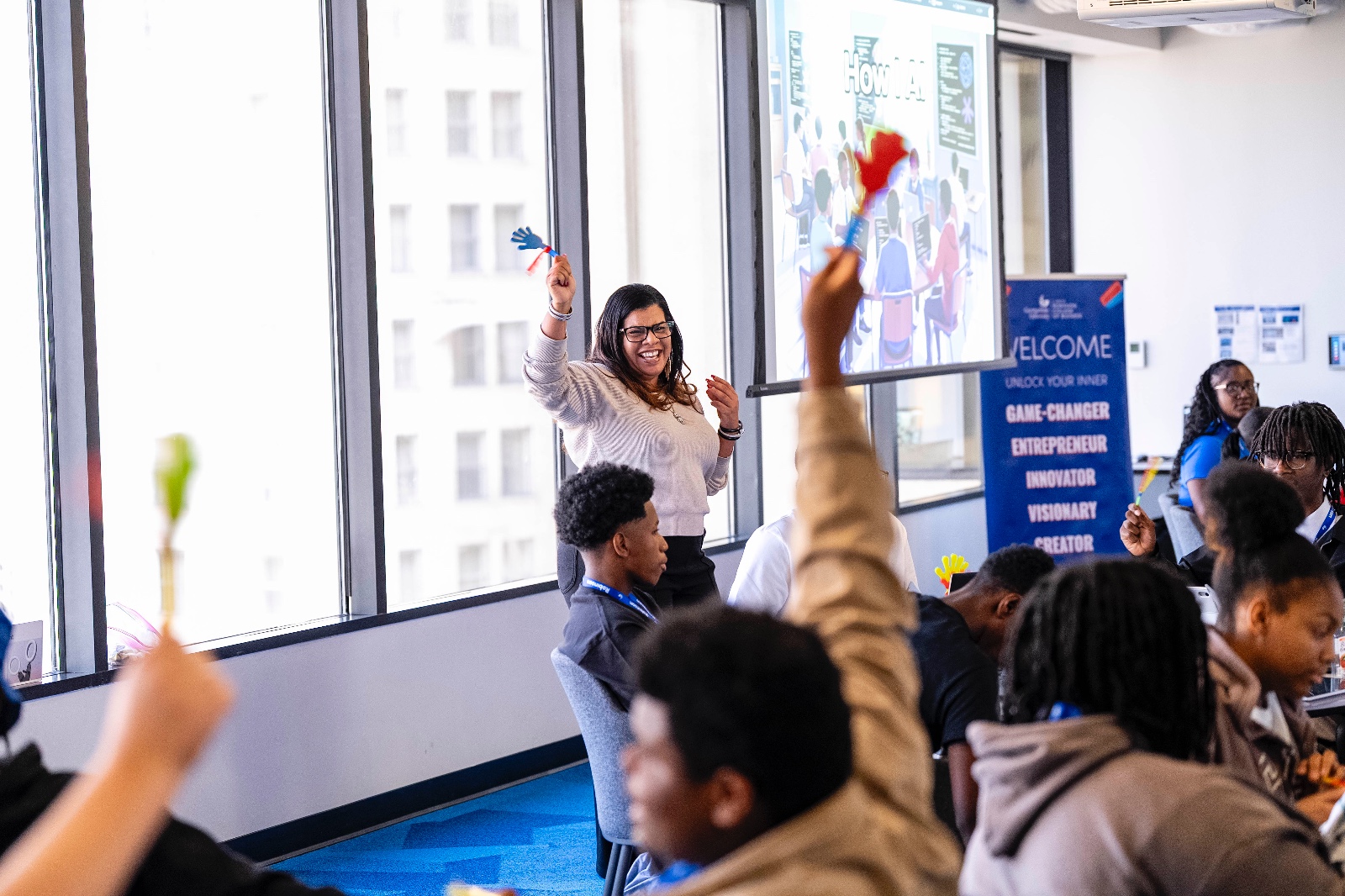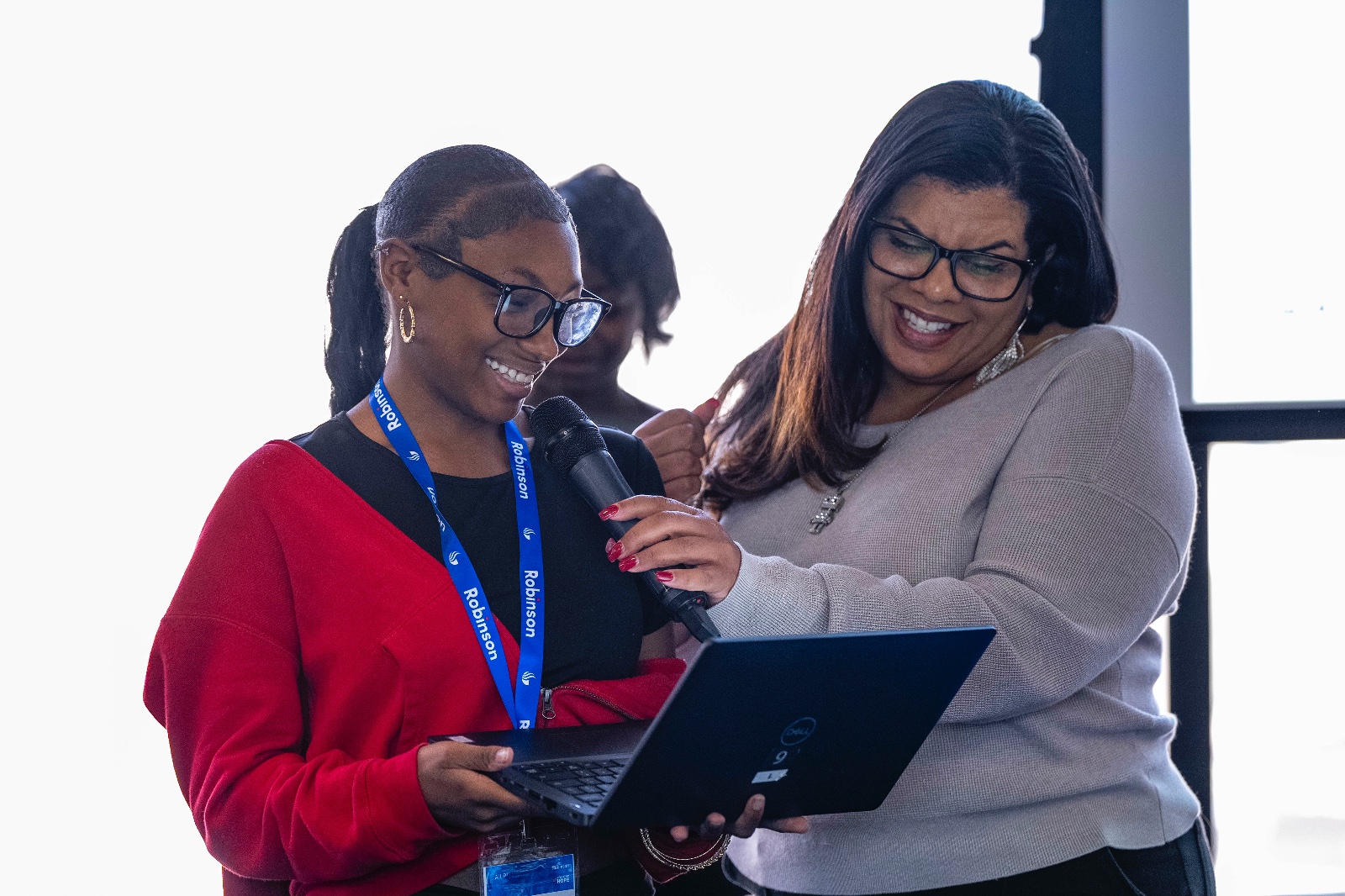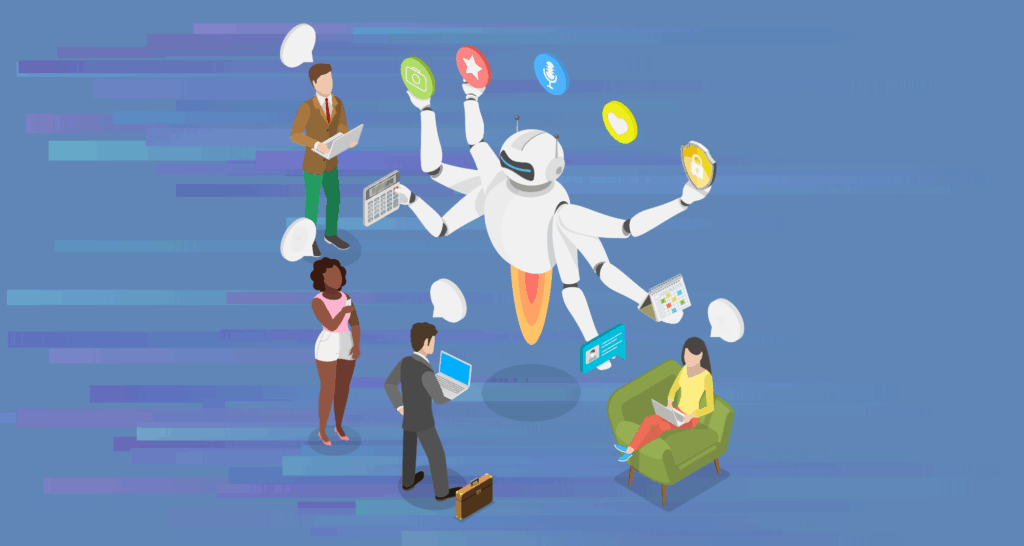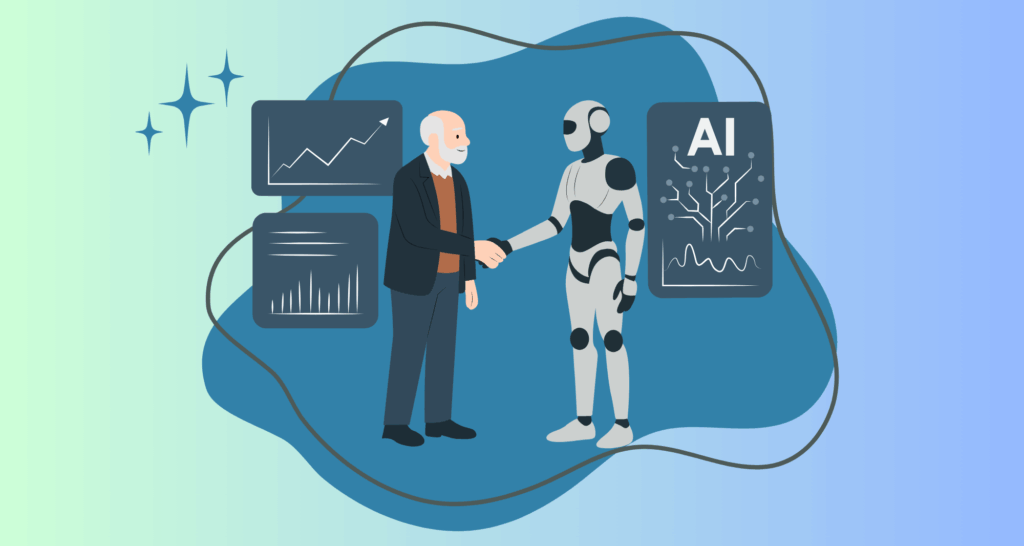Redefining AI Education for High School Students: Alicia Lyttle Leads a Breakthrough Workshop at Georgia State University
A firsthand look at how real-world AI, student creativity, and visionary leadership are reshaping the future of learning.
At AI InnoVision, we believe the future of artificial intelligence isn’t just about who uses the tools—it’s about who gets to shape what’s next.
That belief came to life during a recent workshop led by our CEO and Co-founder, Alicia Lyttle, at Georgia State University’s Robinson College of Business. As part of the AI Literacy Pipeline to Prosperity Project (AILP³)—a pioneering five-day program developed in partnership with Operation HOPE—this experience brought together 42 high school students from across Atlanta for an immersive, future-facing education in AI, entrepreneurship, and innovation.
Alicia’s session, titled “How I AI,” wasn’t just a class. It sparked a shift—proof of what’s possible when access, creativity, and applied technology come together in one unforgettable day.
About AILP³ and the Power of Purpose-Driven Partnerships
But what made this day truly transformative wasn’t just the content—it was the context. The workshop stood at the heart of something bigger: a bold program with a powerful mission. That mission? To level the playing field in tech education and open doors for the next generation of innovators.
The AI Literacy Pipeline to Prosperity Project (AILP³) empowers high school students with real-world AI skills and confidence. It focuses especially on students from underserved communities, who are often left out of these conversations. Georgia State University’s Robinson College of Business partnered with Operation HOPE to co-create this initiative. Together, they built a program that blends tech education with entrepreneurship, leadership, and personal growth.
Over five focused days, students dive into the core concepts of AI, financial tech, design thinking, and innovation. They tackle real-world challenges, work on collaborative projects, and learn directly from experts in the field.
Robinson brings its commitment to business innovation. Operation HOPE brings its legacy of driving economic equity and opportunity. Together, they laid the groundwork for something special—something lasting.
That’s where AI InnoVision comes in. We were honored to lead one of the program’s most dynamic experiences: Alicia Lyttle’s hands-on “How I AI” workshop. It redefined what AI education for high school students could be—personal, accessible, and deeply relevant.
The AILP³ Program: A Full-Week Launchpad
So how does this bold vision come to life across five immersive days? Let’s break down what students experienced—and why each day built momentum for the next.
Each day of the AILP³ program builds on the one before, providing students with the tools and frameworks to think critically, act confidently, and innovate responsibly.
The week unfolds as follows:
- Day 1: The AI Economy & The Future of Work
- Day 2: Understanding How AI Works
- Day 3: Innovation in Action (featuring Alicia Lyttle’s hands-on session)
- Day 4: Fintech + Financial Readiness
- Day 5: Startup Pitch Challenge
By the end of the week, students are no longer just learners—they’re presenting fully formed AI-powered business ideas to a panel of judges. The structure reflects the belief that the best way to prepare students for the future is to let them start shaping it now.
Inside the Workshop: From Curiosity to Confidence

And right in the heart of the program was Day 3—where innovation met application. This is where Alicia’s workshop lit up the room.
Her workshop began with a question: How can AI be used to tell your story?
That spark lit the way for a powerful, hands-on learning experience. Students began with Google QuickDraw, exploring how AI identifies patterns in real time—an engaging entry point into machine learning concepts. From there, they transitioned into ChatGPT, where they weren’t just generating text—they were training the model to write in their voice. Poems, song lyrics, essays—students explored the tool with energy, humor, and insight.
Next came generative design. Students used DeepDream Generator to create original artwork and Hedra to produce short-form videos, each shaped by their interests—whether sports, fashion, gaming, or social justice.
The session ended with a round of live presentations. Every student stood up and shared what they built—not just with clarity, but with confidence. And in those moments, the room shifted. AI wasn’t just a concept anymore. It was personal. It was theirs.
Hands-On AI Education: Where Empowerment Begins
But beyond the tools and tech, something deeper happened. This wasn’t just about what students did—it was about how they began to see themselves in the world of AI.
For many of these students, it was the first time they’d been invited to see AI as something they could use, explore, and direct. That distinction matters.
At AI InnoVision, we believe AI education for high school students must go beyond theory. It must provide students with room to experiment, fail, try again, and ultimately see themselves reflected in the technology.
Alicia was joined by AI InnoVision’s Reginald Hameth (Director of Business Development) and Denise Smith (Director of Innovation), both of whom spent the day mentoring students, facilitating discussions, and offering guidance.
That shift in mindset—from hesitant explorer to confident creator—was visible in every corner of the room.
What we observed was extraordinary:
- Students learned AI concepts more quickly than expected, because the format encouraged them to.
- They jumped into collaboration on their own, naturally supporting one another along the way.
- They asked complex, ethical questions—about bias, fairness, and responsibility.
- And when it was time to share their ideas, they spoke with confidence, clarity, and real pride in what they’d created.
This is the kind of transformation we aim for in every learning environment we touch.
Because when hands-on AI education is done right, it doesn’t just teach students how to use tools; it also instills a deeper understanding of the technology. It teaches them how to lead with them.
Why This Moment Matters

That shift—from exploring tools to building identity—is why this kind of work matters so deeply. It’s not just about skills. It’s about access, inclusion, and agency.
As AI becomes embedded in every industry, access to AI literacy has become more than an educational goal—it’s an equity issue. But information alone isn’t enough.
Programs like AILP³ don’t just check boxes—they model what true inclusion in tech looks like. It’s learning that is:
- Experiential (use it, don’t just learn about it)
- Contextual (see how it applies to real lives and goals)
- Inclusive (meet students where they are—and invite them into the future)
Through workshops like Alicia’s, we’re showing what AI education for high school students can achieve when it’s crafted with purpose.
This isn’t about preparing students for a distant future. It’s about inviting them to shape it—right now.
The Next Generation Isn’t Just Learning AI—They’re Leading With It
And that’s the heartbeat of our mission at AI InnoVision. Because when students are empowered to lead with technology, the future doesn’t just happen—it gets rewritten.
At Georgia State, Alicia Lyttle led more than a workshop—she ignited a movement. Her session embodied the mission of AILP³: to equip young minds with the confidence and skills to lead in an AI-driven world. It wasn’t about watching innovation happen—it was about making it happen.
With the right tools, mentors, and opportunities, students not only absorb knowledge but also develop it. They transform it.
At AI InnoVision, we’re proud to be part of that process. Because when we invest in the kind of AI education for high school students that empowers creators—not just users—we’re not just preparing a workforce; we’re also cultivating a new generation of innovators.
We’re cultivating the architects of tomorrow’s solutions.




